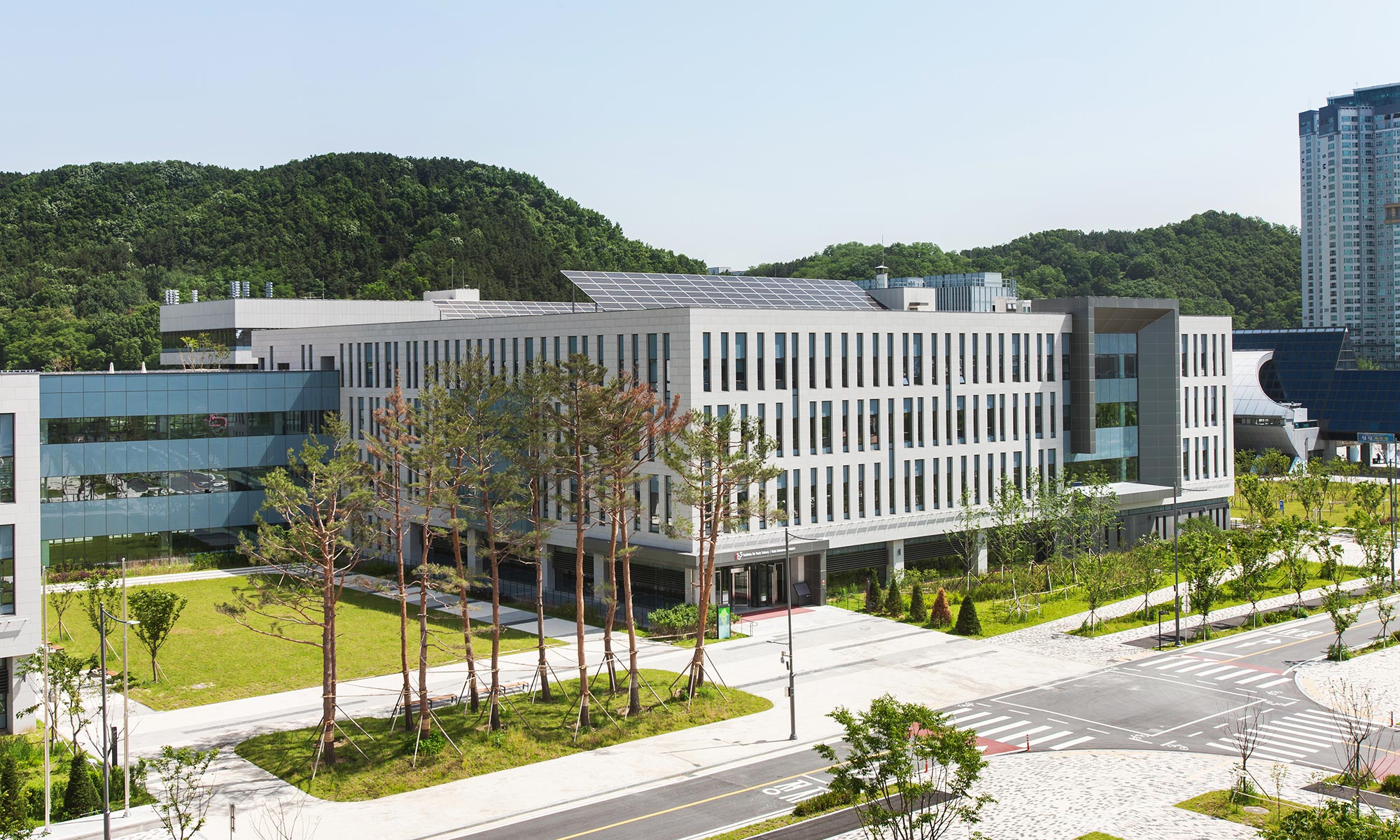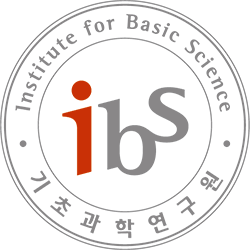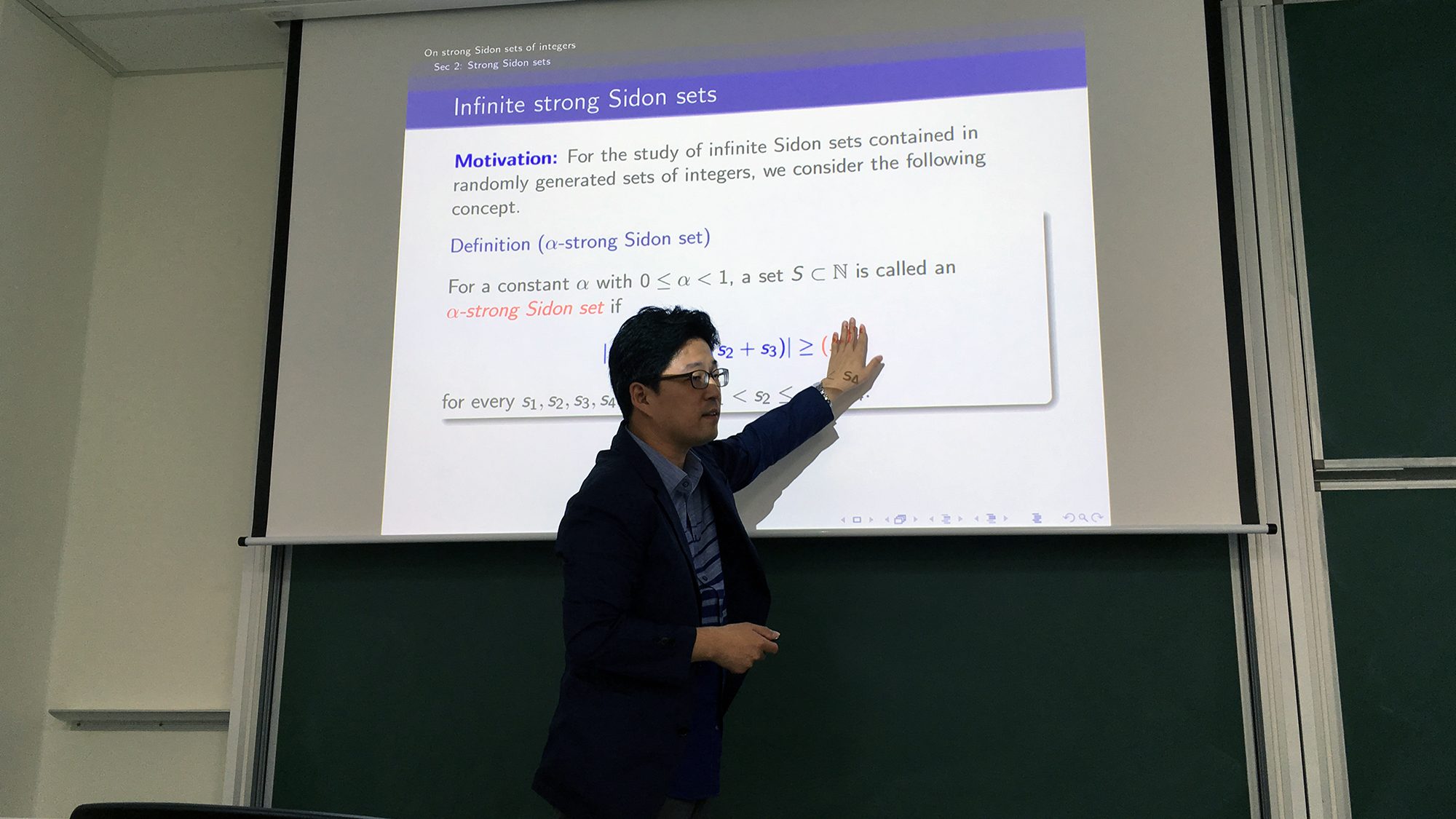Sang June Lee (이상준) from Duksung Women’s University presented his recent work on the strong Sidon sets at the Discrete Math Seminar on May 8, 2019. The title of his talk was “On strong Sidon sets of integers“.
Sang June Lee (이상준), On strong Sidon sets of integers
Let $\mathbb N$ be the set of natural numbers. A set $A\subset \mathbb N$ is called a Sidon set if the sums $a_1+a_2$, with $a_1,a_2\in S$ and $a_1\leq a_2$, are distinct, or equivalently, if \[|(x+w)-(y+z)|\geq 1\] for every $x,y,z,w\in S$ with $x<y\leq z<w$. We define strong Sidon sets as follows:
For a constant $\alpha$ with $0\leq \alpha<1$, a set $S\subset \mathbb N$ is called an $\alpha$-strong Sidon set if \[|(x+w)-(y+z)|\geq w^\alpha\] for every $x,y,z,w\in S$ with $x<y\leq z<w$.
The motivation of strong Sidon sets is that a strong Sidon set generates many Sidon sets by altering each element a bit. This infers that a dense strong Sidon set will guarantee a dense Sidon set contained in a sparse random subset of $\mathbb N$.
In this talk, we are interested in how dense a strong Sidon set can be. This is joint work with Yoshiharu Kohayakawa, Carlos Gustavo Moreira and Vojtěch Rödl.


